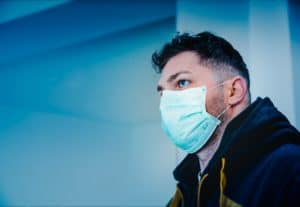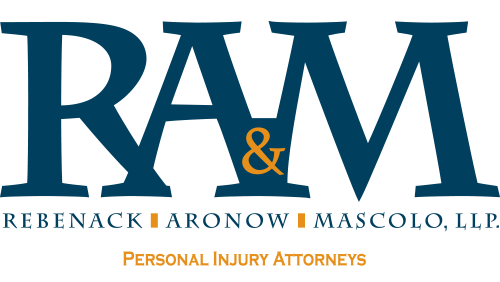Do Truck Drivers Have Sufficient Access to COVID-19 Testing?
When cities across the country began sheltering in place to curb the spread of the deadly novel coronavirus, a spotlight shined on commercial trucking. While communities looked to their local stores, the demand for commercial trucking suddenly spiked 10% in a matter of a few weeks. With the country so heavily reliant on commercial trucking, driver safety and accessible truck drivers COVID-19 testing became critical in the freight industry.
Commercial Truck Drivers Are Essential Workers
Without a doubt, commercial truck drivers have become essential workers during the global pandemic. With communities around the country depending so heavily on the trucking industry, there are now questions regarding how truck drivers and those who come into contact with commercial drivers can remain safe and avoid spreading COVID-19.
Complicating these concerns, scientists now believe the novel coronavirus can survive on surfaces for several days. Therefore, keeping consumers and people who handle transported materials safe is also a top priority. Because the trucking industry is essential to keeping the country running, testing truck drivers is critical. Unfortunately, the industry lacks regulation and uniformity in testing truck drivers.
Detecting COVID-19 Among Truckers
Known scientifically as SARS-CoV-2, the latest variety of coronavirus causes a respiratory infection known as COVID-19. Symptoms of COVID-19 include dry cough, fever, muscle pain, shortness of breath, chills, sore throat, and/or loss of taste and/or smell. Symptoms may get worse and cause pneumonia and even death. The most accurate way to determine whether an individual has COVID-19 is through lab testing. Individuals who suspect they may have COVID-19 must generally travel to a health care provider to have samples collected and tested. For truckers, getting tested means finding the nearest testing center that also has the capacity for truck parking.
Are Commercial Truck Drivers at Risk?

Most people imagine truck drivers spending long hours in solitude traveling on the road. However, there are several points at which truck drivers interact with other people. These moments may put truck drivers at risk of contracting COVID-19 and spreading coronavirus. Truck drivers interact with truck stop attendants, dock workers, and store employees. In addition, they sometimes socialize with other truck drivers. Because long-haul trucking involves interstate travel, it is especially important that a driver who suspects they may have COVID-19 avoid contact with others and undergo testing.
In the interest of keeping truck drivers safe, medical professionals say commercial trucking companies should establish COVID-19 response plans that include procedures for drivers to follow if they suspect they have been exposed as well as access to testing while at home or on the road. Currently, there is no uniform requirement that commercial trucking companies must follow to minimize the spread of COVID-19 and to make testing readily available to truckers.
Challenges in Getting Truck Drivers Tested for COVID-19
Despite the critical role freight companies play in transporting supplies across the country, commercial truckers often face the same obstacles the general public faces when they need access to COVID-19 testing. A driver who experiences virus symptoms while on the road in more remote areas may not be able to find a testing center close by, much less one that offers drive-thru access or parking that can accommodate a large commercial truck. In other cases, testing may be expensive, or there could be a waitlist. Other facilities require patients to make an appointment several days in advance.
Even in larger cities and metropolitan areas, drivers may have difficulty accessing COVID-19 testing for truckers if they do not have affordable, direct access to a testing facility or from their primary care physician. Truck drivers who are unable to receive testing immediately should minimize the risk of spreading the virus to others by following CDC protocol and, if applicable, the COVID-19 response plan for truckers provided by their employer.
Minimizing the Spread of Coronavirus
There are certain steps drivers can take to minimize their probability of becoming infected with COVID-19. Wearing a protective mask that covers the mouth and nose greatly reduces the aerosol droplets that propel coronavirus into the air and onto surfaces. Wearing gloves and frequently washing the hands and face lower the risk of spreading virus particles to the eyes, nose, and mouth, which are all vulnerable entry points for infection. An effective hand-washing routine includes washing or using an alcohol-based hand sanitizer before and after leaving the truck’s cab.
In addition, truck drivers should also regularly clean and disinfect their truck cabs and frequently touched surfaces, including the door handle, steering wheel, turn signal switch, air ducts, temperature controls, radio, and sleeping area. Because most trucking companies do not require COVID-19 testing, drivers must monitor their health and hygiene practices and immediately notify their managers and seek out a testing center if they experience COVID-19 symptoms.
COVID-19 Response Plans for Commercial Trucking Employers
The best approach commercial trucking companies can take to keep their employees safe is to be proactive, vigilant, and organized. To eliminate many of the obstacles that drivers face should they suspect an infection, trucking companies should maintain a database of affordable testing sites that can accommodate truck drivers and their rigs. Some urgent care clinics work with the trucking industry to make testing available to drivers at their locations across the country. Employers may totally eliminate expense as a barrier by covering the cost of their drivers’ COVID-19 tests.
Employers should also monitor drivers closely and educate them on COVID-19 symptoms so they can recognize early signs of illness. Drivers who experience symptoms of infection should be mandated to self-isolate and return home until they recover and test negative for COVID-19. Lack of rest from illness or fatigue may increase the risk of accidents on the road. Individuals who have been injured by a truck driver who exhibited signs of fatigue should immediately contact a trucking accident lawyer.
Possible Legal Implications of Limited Testing for Truck Drivers
Not only is it in a truck driver’s best interests for their employer to enact a highly supportive, well-organized COVID-19 response plan, but doing so may also reduce the employer’s exposure to liability. A commercial trucking company that requires drivers to remain on the road despite knowing their COVID-19 symptoms may be subjected to a legal claim. A driver who is experiencing COVID-19 symptoms is also more likely to suffer from fatigue, body aches, and other symptoms that may detract from their ability to safely operate a large truck while following a demanding schedule.
Furthermore, truck drivers who spend long hours on the road are often at a greater risk to develop complications or develop a fatal case of COVID-19. That’s because they are more likely to be overweight or have hypertension and diabetes due to their mobile lifestyle and often less-nutritious diet. Therefore, keeping drivers healthy and protecting others who come in contact with them may also protect freight companies from civil law consequences.
For more information about how COVID-19 is impacting commercial trucking safety, contact a trucking accident lawyer at RAM Law. We’re available to help victims who have been injured in commercial truck-related crashes. You can reach our New Jersey offices in New Brunswick and Somerville at (732) 394-1549.


